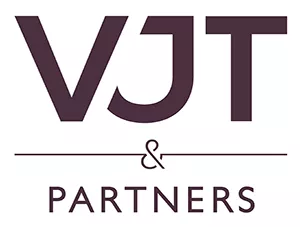- within Technology topic(s)
- in European Union
- in European Union
- in European Union
- in European Union
- in European Union
- in European Union
- in European Union
- in European Union
- in European Union
- with readers working within the Banking & Credit and Media & Information industries
- within Technology and Privacy topic(s)
Could crypto trading land you in prison? Hungary's new crypto transaction validation regime
Hungary has taken a bold step in tightening its cryptocurrency rules. Over the summer, lawmakers adopted major amendments introducing a new validation requirement for crypto transactions.
This national framework is independent of the EU's MiCA regulation and shows Hungary's intent to move faster in improving control and transparency. Many users first noticed the change when Revolut and other platforms restricted crypto transactions—a direct consequence of the new regime rather than business strategy.
A new layer of compliance: what "validation" means
Under the amended law, every crypto exchange transaction—whether crypto-to-crypto or crypto-to-fiat—must be validated.
Validation means verifying both the client's identity and transaction details. It can only be performed by an entity licensed by the Supervisory Authority for Regulated Activities (SZTFH), ending with the issuance of a compliance declaration. Without this declaration, the exchange is considered unlawful.
Purchases of crypto assets are not subject to validation—only exchanges.
New criminal offenses
The amended Criminal Code introduces two new crimes:
- Providing unauthorized crypto exchange services, and
- Misuse of crypto assets.
Both relate to missing validation. The first targets unlicensed
providers, the second may affect users who knowingly take part in
unvalidated transactions.
If the value exceeds HUF 5 million and the conduct is intentional,
criminal liability and possible imprisonment apply.
When validation is not required
The Supervisory Authority for Regulatory Affairs (SARA) has issued an Implementing Decree listing exceptions. Validation is not required if:
- A natural person converts their own crypto for personal use;
- The service is free of charge or occasional;
- The exchange occurs in a decentralized way, such as via smart contracts that bridge or pool assets automatically; or
- The transaction happens as part of a criminal investigation.
These exemptions mainly cover crypto-to-crypto conversions. Converting crypto into fiat or involving legal entities still requires validation unless another exemption applies.
Who can act as a validator?
Only those entities authorized by the Supervisory Authority for
Regulated Activities (SZTFH) and meeting the conditions set out in
the Implementing Decree may perform validation.
What this means for investors?
For everyday crypto investors, the new rules mean being more
conscious of how and where they trade.
Clients should check whether the service they use requires
validation, and if so, ensure that the transaction is validated by
an appropriately authorized provider.
Ignoring this step could result in their exchange being considered unlawful—and, in some cases, even lead to criminal consequences.
What crypto service providers should do now?
The new rules impose substantial obligations on crypto service providers, who must ensure that validation is carried out by an entity authorized for this purpose. The safest approach is to engage an independent, licensed validator, although the law does not expressly exclude the possibility for a provider to obtain the necessary authorization and perform validation itself.
To prepare, providers should:
- Assess which of their activities require validation;
- Engage an authorized validator and integrate validation into transaction workflows;
- Update procedures and documentation to reflect the new compliance steps;
- Train staff and inform clients about the rules and penalties for unvalidated exchanges; and
- Monitor future regulatory guidance, especially regarding the practical operation of validation.
When do the rules take effect?
The Implementing Decree enters into force on 30 October 2025, while the amendments to the Crypto Markets Act—forming the legal foundation of the system—apply 60 days later.
This gives market participants roughly two months after the Decree's entry into force to align their operations before full enforcement begins.
The bottom line
Hungary's validation regime marks a significant step toward a more regulated and transparent crypto market. It introduces obligations for both users and providers and attaches serious legal consequences for non-compliance.
At the same time, key practical questions remain especially how validation will function day to day. For now, the message is clear: Hungary is taking crypto oversight seriously, and all market participants should prepare for a new compliance-driven era in crypto trading.
The content of this article is intended to provide a general guide to the subject matter. Specialist advice should be sought about your specific circumstances.




